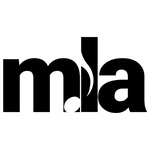The Moravian Music Foundation (MMF) is making its major collections discoverable through online catalogs — GemeinKat and RISM. The collections of the Moravian Music Foundation contains records for 18,247 manuscripts and early imprints of vocal and instrumental music, sacred and secular music, from the sixteenth through twenty first centuries. Not all music was written by Moravian composers, but it is all music which the Moravians used and enjoyed. These collections represent congregational collections, collegium musicum collections, and personal collections from Moravian settlements and individuals in America. The cataloging project has several components. Book and card catalogs created during NEH projects in the 1970s are being converted to online. The Research Library collection integrates the Foundation’s music resources with the Moravian Archives history and religion resources. GemeinKat, a version of WorldCat Discovery, brings together the manuscripts, early printed music, modern editions, and recordings.
Although the story about organizing and cataloging Moravian music collections in Bethlehem, PA and Winston-Salem, NC is a story in itself, a review of processes used to create and transfer our manuscript and early imprint data from OCLC to RISM reveals that more flexibility, inclusiveness and innovation have been facilitated by OCLC’s and RISM’s new tools — Record Manager, Muscat, Plaine & Easy Code, Verovio, and RISM’s current database and infrastructure changes. RISM, or, the International Inventory of Musical Sources or Répertoire International des Sources Musicales (RISM) – is an international, non-profit organization which aims for comprehensive documentation of extant musical sources worldwide, such as, manuscripts or printed music, writings on music theory, and libretti, which are housed in libraries, archives, monasteries, schools and private collections. Founded in Paris in 1952, RISM is the largest and only global operation that documents written musical sources. RISM records what exists and where it can be found. As a result, musical traditions are protected through cataloguing in a comprehensive inventory while also being made available to musicologists and musicians. When the Moravian Music Foundation initiated the current cataloging project in 2014, the over-arching goal was to transition our catalog from paper to an online catalog and to the RISM database. Using the collections from Lititz, Pennsylvania, this paper will cover through example and online demonstration major phases of the project: using Backstage Library works to create MARC records, using WorldShare Record Manager to customize those records, using MarcEdit to meet requirements for inclusion in RISM, batch loading of some files and individual “copy cataloging” of other items in RISM. The session will also briefly show creating musical incipits for manuscript and printed works and comparing differences in standards and practices between records in OCLC and RISM.
Barbara Strauss, Moravian Music Foundation
11:15am, 45 minutes

